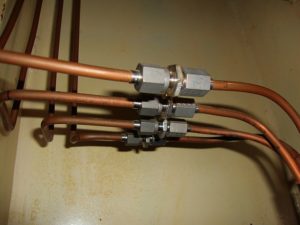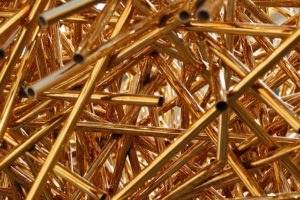Whether you are casting a machine part or sculpting a statue, bronze is the perfect material to use. Its malleability and low-friction property makes it well-suited for these and many other applications. The problem is, bronze materials come in a range of qualities, and some are even faux. You have to be able to distinguish genuine bronze from faux if you want a superior output in your project. You have to know where to buy bronze sheet metal as well to ensure you’ll get the best quality. Here’s how you can test for bronze.
Strike with another Metal
One of the best ways to determine whether or not a bronze piece is genuine is by listening to the sound it creates when hit with a hard object. A genuine bronze usually creates a lovely ringing sound that lasts for a few seconds, while a fake one creates a dull, heavy sound that disappears fast. The thing that makes this possible is bonze’s tin content. Tin atoms that are well placed within the molecules of copper provide stability, allowing for the transfer and reverberation of sound instead of absorption.
Carry It
Bronze in its purest form is quite heavy. Of course, a lot of other metals are heavy but bronze is unique. It’s harder and denser than most commercially available metals. Those that are harder and denser than bronze are often found in science laboratories and bank vaults. In other words, you can easily identify a fake bronze when you see one by simply lifting it. Unfortunately, unlike other fake products that could get manufacturers into trouble with the law, faux bronze is well-accepted on the market. It’s a mix of resin and bronze powder that looks and feels just like bronze except weighs lighter. That is not the kind of material you would want in most of your projects.
Color and Patina
Bronze sheet metal for sale are available in a variety of shades primarily because of content variation. Bronzes with more tin usually have a lighter shade. Other metals, such as aluminum, manganese, and nickel, mixed with the original alloy also have an effect on the color of the finished product. These shades are hard to mimic. Also, bronze is usually quick to tarnish as a precursor to patination, the process of forming patina on the surface, which is unique in copper alloys. That’s hard to mimic as well. So if the metal you bought suspiciously stays shiny for many days or weeks, that’s probably fake.
Chisel It
Have you ever wondered why a lot of metal sculptures and monuments are made of bronze? That’s most likely because bronze has an unusual property of expanding a small amount when solidifying from a liquid into a solid. For sculpture casting, this is desirable, as it helps to fill a mold. It is also capable of maintaining its physical feature and won’t easily crack when chiseled. To know if it’s really bronze, try to chisel on a particular surface and see what happens.
These are only four of the methods for identifying genuine bronze. Of course, if you want to avoid all the trouble, simply go to reputable bronze sheet metal suppliers like Rotax Metals. With a reputation built on product quality and excellent customer service, they won’t risk offering you faux products.




